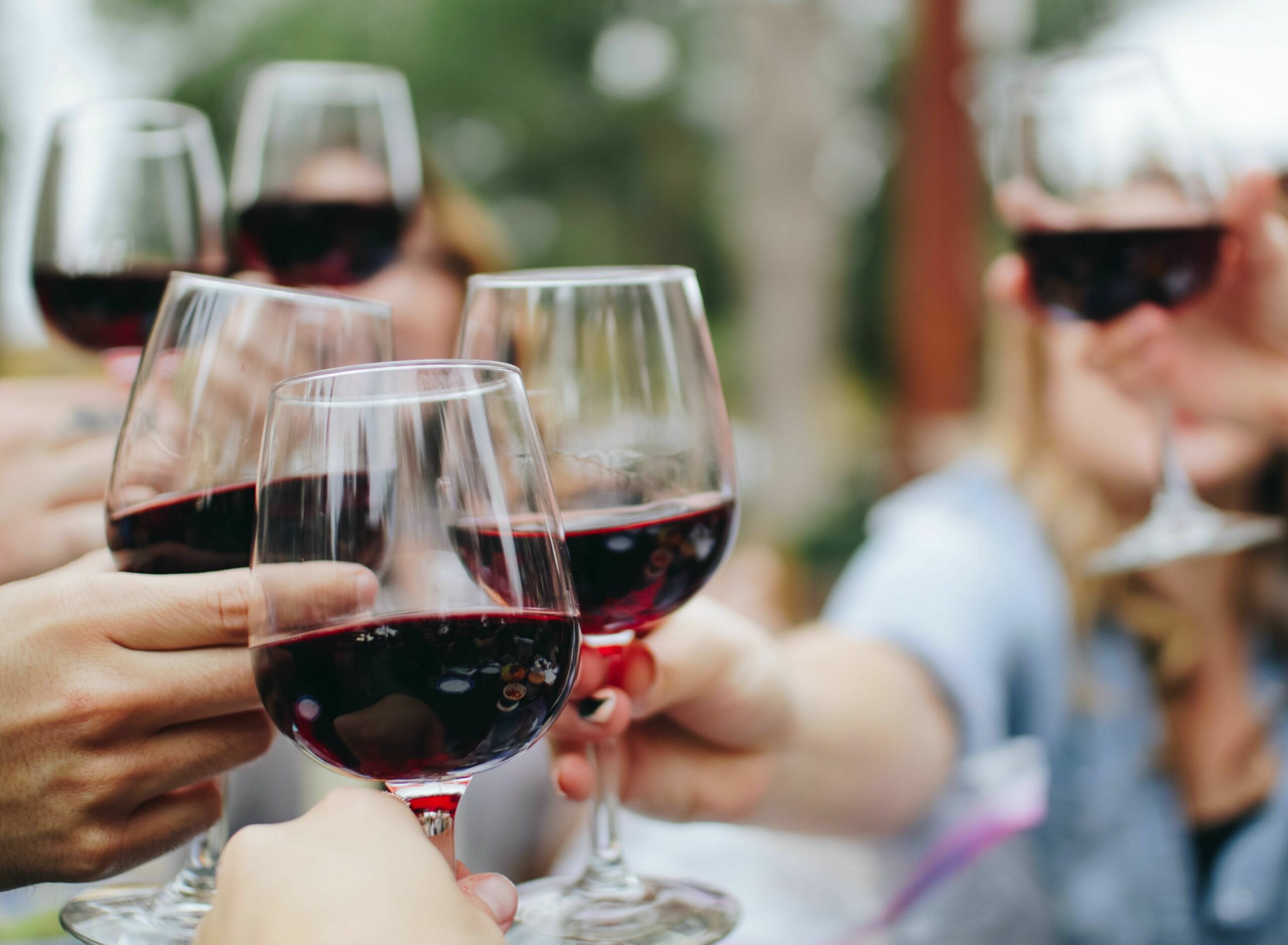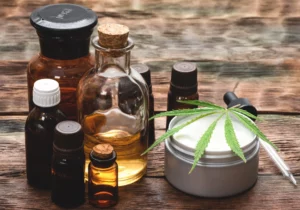Alcohol is part of the social fabric in many countries around the world. From toasts at a wedding to a night out with friends or a relaxing evening after a hard day’s work, drinking can boost mood, ease stress and reduce inhibitions.
But this legal drug can also cause great harm, both to the individual who consumes it and to the society at large. Around 88,000 deaths annually are attributed to alcohol in some way, including suicide, homicide and deaths from alcohol-related complications such as heart and liver damage.
Now, though, evidence is mounting that cannabis in its many forms can be a safer alternative to alcohol, an effective substitute for many of the reasons people choose to drink in the first place. Relatively recent research suggests that for many people, cannabis could even provide a way out of alcohol abuse. To see why, it’s important to consider the reasons people choose to use alcohol in the first place.
FOLLOW US ON FACEBOOK & INSTAGRAM
Why People Drink: To Feel or Not to Feel
For decades, researchers have worked to understand why people use alcohol, and why some can enjoy an occasional social drink without going further, while others become dependent on alcohol—or outright addicted. Those studies reveal numerous reasons for abusing alcohol that can include genetic, social and economic factors. But British physician Bruce G. Charlton has noted that the fundamental reasons for drinking
can be reduced to just two: a desire to experience a good feeling or to avoid experiencing a painful one.
For example, someone might drink at a party to drive away feelings of social awkwardness— or to feel relaxed, euphoric and happy, while a person suffering from depression might drink to escape sadness and feelings of inadequacy. And someone with debilitating arthritis might turn to alcohol to cope with chronic pain. Whether to feel good or avoid feeling bad, Charlton claims, people typically turn to alcohol as a form of self-medication.
Alcohol Has Powerful Effects on the Pleasure-Reward Circuit
Like other drugs, alcohol affects the brain’s pleasure-reward-learning circuit. This is a complex and powerful loop of neural activity that produces positive feelings in response to certain behaviors, so that we repeat those behaviors again and again. This circuit can be hijacked by potent substances like opioid drugs and alcohol, which trigger a larger than normal production of “feel good” brain chemicals like serotonin and dopamine while suppressing the levels of other, balancing neurotransmitters.
Alcohol affects not only the pleasure-reward-learning pathway, but also other areas of the brain related to coordination, memory and the executive functions of the cerebral cortex. These functions include decision-making, impulse control and managing emotion. Alcohol can also depress activity in the brain stem and lower response to pain signals from various parts of the body. You might have seen this when someone whose been drinking becomes drowsy, unresponsive or unaware of physical injuries.
In the long run, an addiction to alcohol can also slowly compromise the brain and other systems in the body, increasing vulnerability to disease and causing irreversible organ damage.
Marijuana & Alcohol: Different Effects Produce Similar Outcomes
Cannabis also affects the brain’s pleasure-reward-learning circuit. People who consume cannabis also typically experience feelings of euphoria, relaxation and lowered inhibitions. But those effects come from very different mechanisms in the body.
The human body contains numerous receptor networks—systems of cells capable of responding to triggers produced either by the body itself or from similar substances that are consumed from outside sources. One of the most comprehensive receptor networks in humans and other vertebrate animals is the endocannabinoid receptor system, a widespread system of receptors that responds to active cannabis compounds like cannabidiol (CBD) and tetrahydrocannabinol (THC).
When a person consumes marijuana, those receptors are activated, producing a wide range of effects that include pain and inflammation relief, muscle relaxation and a stronger immune system. Cannabis can cause mild side effects such as impaired coordination and concentration, but has a very low risk of overdose or death. In fact, no deaths have ever been directly attributed to consuming too much cannabis.
The body has no receptor network for alcohol, though. Alcohol acts on a variety of different receptors in the brain and body, and while it can make people feel temporarily better by altering mood and promoting relaxation, it also causes disruptions and delays in the cross talk between cells. What’s more, alcohol is essentially a neurotoxin, capable of causing brain cells to shrink and cells in other organs such as the liver to malfunction and die.
Can Cannabis Be a Healthier Alternative to Alcohol?
To find out whether cannabis could help people stop, or reduce, their use of alcohol, psychiatrist and marijuana advocate Tod Mikuriya of UC Berkeley conducted a
study of 92 patients for whom he had prescribed marijuana as a treatment for alcohol abuse. His 2004 study revealed two key insights about the potential for cannabis to help alcohol abuse.
A majority of the people in Mikuriya’s study group reported having emotional or physical health conditions, such as anxiety, depression, PTSD, arthritis, glaucoma, bipolar disorder, traumatic brain injury or chronic pain from a number of causes. Almost half acknowledged they were using alcohol as a way to cope with these conditions.
When study participants used cannabis rather than alcohol, many reported that their symptoms improved, and they had less need to use alcohol to relieve them. They also reported an improved quality of life, without the complications caused by alcohol such as aggression, poor judgment or trouble with law enforcement. When they stopped using cannabis, their symptoms returned—and so did the desire to drink.
Like Charlton, Mikuriya observed that people frequently use alcohol to relieve emotional or physical pain—and that cannabis has well-documented benefits for treating both those things, along with the symptoms of all the conditions experienced by the patients in his study. For those reasons, he concluded, cannabis could be an effective and generally safe substitute for alcohol use.
RELATED: CAN YOU BE ADDICTED TO MARIJUANA?
Marijuana Maintenance—A Way Out of Alcohol Addiction?
Millions are spent every year on alcohol treatment and recovery programs—but over 60% of people who enter alcohol treatment relapse anyway, often multiple times. And for many, staying sober requires constant vigilance and sometimes the help of multiple medications to curb the desire to drink.
A number of alcohol-related organizations and support groups for recovering alcoholics are now embracing “marijuana maintenance,” a plan for staying off alcohol by substituting cannabis products of various kinds that contain either CBD or a combination of CBD and THC. For those who use alcohol as a way to relieve the pain and distress of emotional or physical conditions, cannabis products can do that too, without the considerable societal and health risks of alcohol.
And for those who use alcohol for the opposite reason—to experience positive feelings of relaxation and euphoria—cannabis can also provide that kind of experience, with a lower risk of toxicity and harmful effects for both consumers and the world around them. Bruce Charlton, the British researcher and cannabis advocate, points out that people will always search for ways to feel better, or to escape from feeling worse.
With a low risk of addiction and a natural affinity for the body’s own receptor system, cannabis could provide that too—and become the “exit drug” from alcohol’s harmful effects that everyone’s been looking for.
Photo credit: Kelsey Knight
If you’re new to cannabis and want to learn more, take a look at our Cannabis 101 post. HelloMD can help you get your medical marijuana recommendation; it’s easy, private and 100% online.






